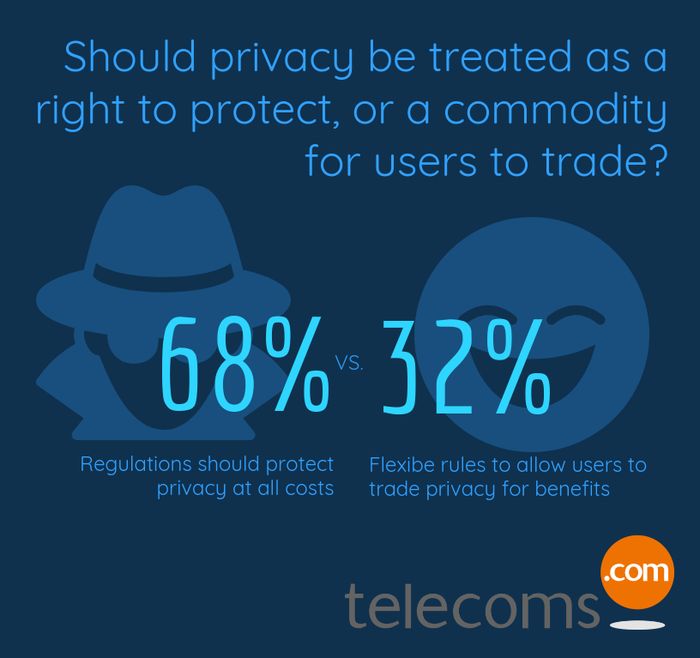Infographic: Is privacy a right or a commodity?
With the digital economy leaning more heavily on user openness and sharing personal information, you have to ask how privacy should be regulated.
August 15, 2018

With the digital economy leaning more heavily on user openness and sharing personal information, you have to ask how privacy should be regulated.
On one had you have those who want to protect privacy at all costs. That is perfectly reasonable, but it does make it difficult for certain aspects of the digital economy to work effectively. Most publications, for example, now offer free content to the user but the value exchange is personal information which can be used to create advertising platforms.
In pushing for hardcore privacy protections in regulation and legislation, you have to wonder whether this business model could operate effectively. GDPR has caused all sorts of issues for some organizations, and this is only the tip of privacy reforms.
If you asked the consumer to pay instead of offer information as a value exchange, they might not be too happy. Free has become the norm nowadays. So is regulating to stringently protect privacy the right thing to do when the consumer might be happy to trade privacy for benefits?
We do not know the answer to this question, so we asked Telecoms.com readers for their input.

About the Author(s)
You May Also Like








.png?width=300&auto=webp&quality=80&disable=upscale)


_1.jpg?width=300&auto=webp&quality=80&disable=upscale)


.png?width=800&auto=webp&quality=80&disable=upscale)